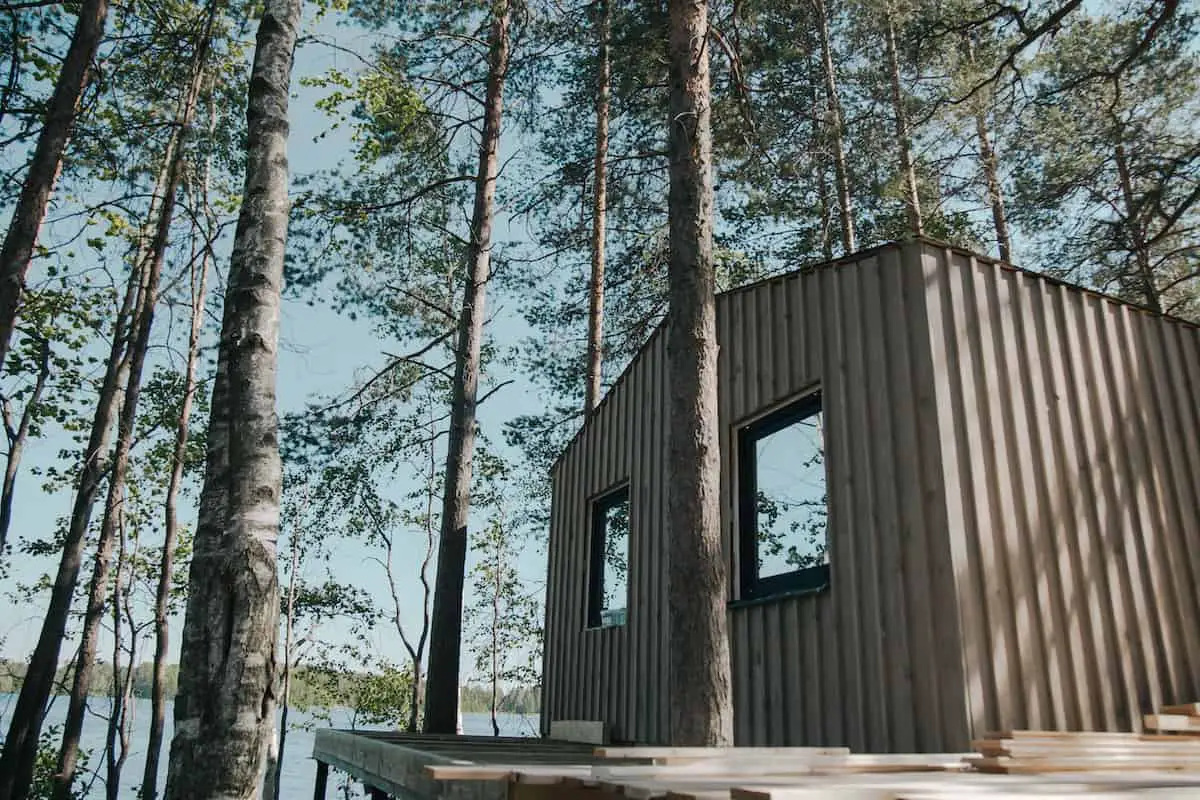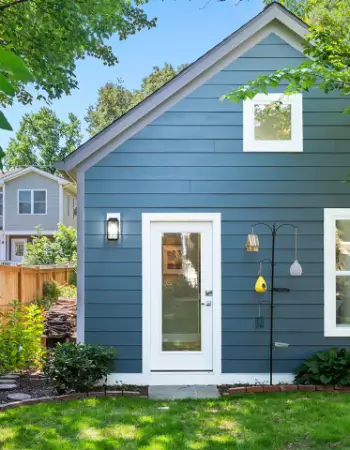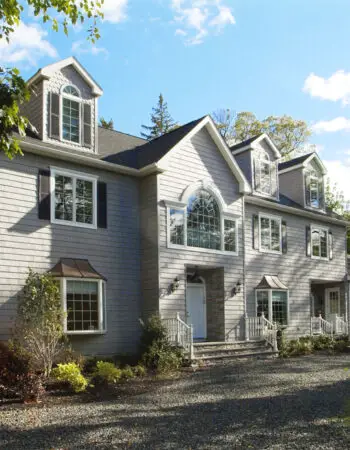Modular homes can be trade-in just like a traditionally built house because even if they have been constructed with a different technique, they are still treated as real estate property. While most people are familiar with vehicle trade-ins, house trade-ins are not as commonly known. Still, they are becoming more popular every day since they highly simplify the process of selling your current home to buy a new one. Usually, these two steps are done in two separate transactions: first, you sell your current home and then purchase the new one. A trade-in groups these two steps into one single transaction which beyond simply swapping homes, is a recognized real estate transaction usually done with the help of realtors that requires contracts and money exchange.
The process of trading in a modular home:
- Find a homeowner interested in trading homes with you
- Hire a real estate agent and get both contracts drafted
- Get a mortgage loan if necessary
Trading in a modular home follows exactly the same process any other permanent house would follow regardless of which construction technique was used to build it. However, in some situations, modular homes could face some setbacks. These difficulties are based solely on popular misunderstandings regarding modular construction, though they should be taken into consideration because they could still interfere with the transaction’s success.
The process of trading in a modular home
The process of trading in a modular home follows the same course of action that would be required while trading in traditional construction. Therefore, it is possible to trade a modular home in exchange for a house that was built following a different technique and vice versa.
1. Find a homeowner interested in trading homes with you
Trading in a home means swapping your current home for another and to do so, the very first step is to find someone who wants to swap homes with you. You are looking for a homeowner whose house suits your needs. Moreover, they should also see your current home as the house that satisfies their needs. As you might have imagined, this is the hardest step of the trade-in process.
However, while this is the most traditional way of trading a home, today there are companies such as Reali [1] or HomeLight Trade-In [2] that help you connect with your swapping partner and facilitate the exchange process. Moreover, some companies are bringing the trade-in program a step further and also help you trade in your old home for a brand new one. Zillow, for example, acts as an agent and partners together with some builders to help you trade your old home for a newly built one [3]. Though in some cases it is the same builder who offers a trade-in program and a good example of this is Fulton Homes [4].
2. Hire a real estate agent and get both contracts drafted
If you have chosen to trade in your home without contracting the services of an agency, the next step once you have found someone to swap homes with is to either hire an experienced real estate agent or consult with a real estate lawyer. While this isn’t mandatory it is recommended to get an expert’s advice and opinion because house trading can become complex and stressful.
Ideally, you would hire a real estate agent who would act as a dual agent because a dual agent acts in the representation of both parties and therefore becomes a negotiator as well [5]. While house trading might seem as simple as exchanging homes, this transaction requires setting a value on each property and exchanging money since it is highly rare that both properties are of the same value. Therefore, since the price set by each party will often be discussed and adjusted before a contract can be written, counting on experts will ease the process.
A property cannot be sold, bought or traded without a contract [6], which in most cases is arranged by the dual agent. The contract is a written document containing all the agreements and should always be prepared to protect the interests of the client [7], which in this case includes both parties. Counting with the services of an experienced real estate agent is of extreme help in this step because both writing a contract and setting the value of each property are complex procedures that can easily lead to conflict.
3. Get a mortgage loan if necessary
Swapping houses might still require you to qualify for a mortgage. If the house you are moving into is of higher value compared to your current home, you might need to qualify for a loan. There isn’t much difference between requesting a mortgage after a trade-in or after buying a house in a traditional way. In a similar way, if you have a current mortgage, this one will be paid off at the moment of the transaction, just as it would in a selling contract.
The only difference between mortgages in trade-ins and sell-buy contracts is that in trade-ins the whole process of selling and buying is simultaneous. To ensure this process is properly done and avoid finding yourself paying two mortgages at once, it is important to be guided in the process by an experienced real estate agent and attach the contract to the mortgage application.
Problems you might encounter while trading in a modular home
Modular homes are high-quality constructions that are legally treated just like any other traditionally built house. Therefore, a trade-in transaction involving a modular home is legally treated just like any other traditional home would, regardless of the construction technique used to build the house.
However, modular homes are sometimes subject to a negative public opinion given that they are occasionally mistakenly equated to mobile homes. This confusion is highly misleading because modular and mobile homes aren’t only different types of construction but also hold distinctive titles: modular homes are considered real estate property while mobile homes are treated as personal property.
Mobile homes are built as transportable units and are therefore traded in a similar way other vehicles would. Modular homes, on the other hand, are always built and treated as permanent constructions just like any other traditionally built house. While a mobile home trade-in will follow a process more similar to a vehicle trade-in, the process of trading in a modular home can only compare to a real estate property swapping.
Despite being based on a misunderstanding, this mobile-modular comparison could represent an obstacle when looking for a homeowner to trade in your modular home. However, the fact of trading a house built with modular technique shouldn’t affect the real value of the property and in legal terms should be treated equally.
References
- If you’re buying and selling at the same time, why do it the hard way? Reali https://reali.com/buy-before-you-sell/
- How HomeLight Trade-In works HomeLight, Inc https://www.homelight.com/trade-in#
- Passy, J. (2019, September 30) Want to trade in your home? Zillow tries a model most often used by car dealers Market Watch, Inc https://www.marketwatch.com/story/zillow-partners-with-home-builders-to-expand-home-buying-business-2019-09-23
- Fulton Homes Trade-In Program Fulton Homes Corp. https://www.fultonhomes.com/trade-in-program
- Confused About Real Estate Terminology? – Dual Agency Realty Voicehttps://www.realty-voice.com/real-estate-terminology.html#Dual-Agency
- The sale process. Selling a property Fair Trading. NSW Government https://www.fairtrading.nsw.gov.au/housing-and-property/buying-and-selling-property/selling-a-property/the-sale-process
- What Clauses Should be Included in Real Estate Contracts? Realty Voicehttps://www.realty-voice.com/real-estate-contracts.html



